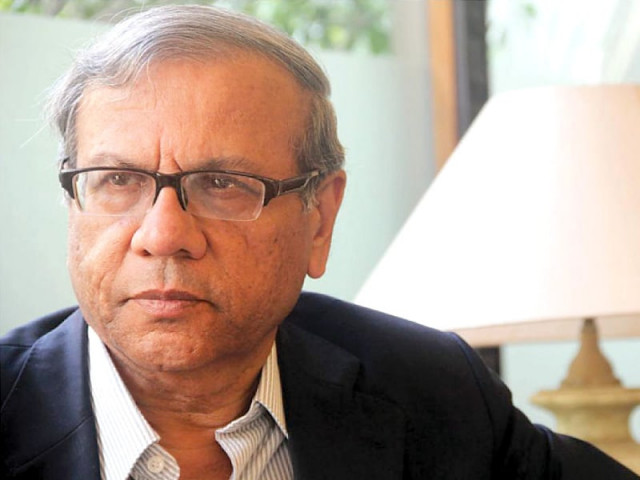'Local government system virtually abolished in Sindh'
Speakers point out flaws in functioning of local bodies at launching ceremony of research study

Bengali said the previous Pakistan Peoples Party (PPP) government failed to find serious buyers in its tenure.
Researcher and the executive director of the Institute for Progressive Ideas to Re-Inform Governance (INSPIRING) Pakistan, Dr Niaz Murtaza, said this at the launching ceremony of a research report 'Undermining Local Governance: A Review of the Sindh Local Government System, 2013' on Tuesday. The research was conducted by Dr Murtaza and Dr Saeed Ahmed Rid, while the ceremony was jointly organised by INSPIRING Pakistan and Pakistan Institute of Labour Education and Research.
The research study, which was conducted in Karachi and Shikarpur districts, revealed that many key functions have been reassigned to the province in the 2013 LG system, including police and building control. City development authorities have also not been placed under the elected local bodies.
Research-based studies to highlight women’s issues
In his speech, Dr Murtaza said powers of Karachi Metropolitan Corporation (KMC), the biggest local body in Sindh, were quite limited. Some key LG functions, including education, environment and security, do not fall under the purview of the KMC, he said, adding that some of the functions included under the KMC's domain are control of stray dogs, brick kilns and cattle colonies, which are more appropriate for union councils. The scope of powers of the KMC must be revisited so that all key LG functions for Karachi fall under its purview, the researcher said.
The researcher also pointed out loopholes in the law. Neither the Sindh Local Government Act, 2013 nor the Constitution of Pakistan mandates immediate re-elections for the local bodies within a stipulated period in case of completion of term or early dissolution, he said, adding that the law must be modified to mandate holding of elections within 90 days, in case the local bodies are dissolved.
The army-controlled cantonment areas in Karachi and elsewhere have their own separate LG structures, which create multiple and confusing jurisdictions, Dr Murtaza maintained. Such areas should be brought under the supervision of the relevant city municipal authority, he said.
Youth Festival held at the National Museum of Pakistan
Political parties hesitated to nominate persons from marginalised groups in the 2016 elections and many affluent candidates captured seats reserved for low-income persons. The application process for the elections must be reviewed to end elite capture of reserved seats, Dr Murtaza demanded.
Presently, LG system has virtually been abolished in Sindh and Punjab, said economist Dr Kaiser Bengali. Provincial governments are making companies for all LG services instead of providing powers to local bodies, he said.
"We don't have homogenous population in Sindh and we have witnessed discriminatory spending of public funds in LG system," Dr Bengali said, adding that during the former LG system under retired General Pervez Musharraf, Karachi's district city government had not spent even 1% on localities where Sindhis and Balochs were in majority. Political parties exploit ethnic communities instead of serving them, he said.
Reforms Programme: Pre-primary classes for govt schools
Dr Bengali also criticised Provincial Finance Commission, calling it a body of bureaucrats. Major taxes are kept by the provincial government, whereas LGs do not have the authority to collect taxes, he said.
Sindhi population in Sindh has been losing its majority and in Karachi, Mohajirs are turning into minority, claimed Dr Bengali. In 2013 elections, two Pakhtoons were elected to the Sindh Assembly and it is hoped that in 2018 elections, the number of Pakhtoon members would increase to five to seven, he said. Due to military operations a large number of Pakhtoon people have migrated to Karachi, which has increased their political power in Sindh, he said, adding that Seraikis are also migrating in a large number to Karachi due to economic reasons. All ethnicities should join together for welfare of the province and for that purpose political agreement is needed, Dr Bengali maintained.



















COMMENTS
Comments are moderated and generally will be posted if they are on-topic and not abusive.
For more information, please see our Comments FAQ